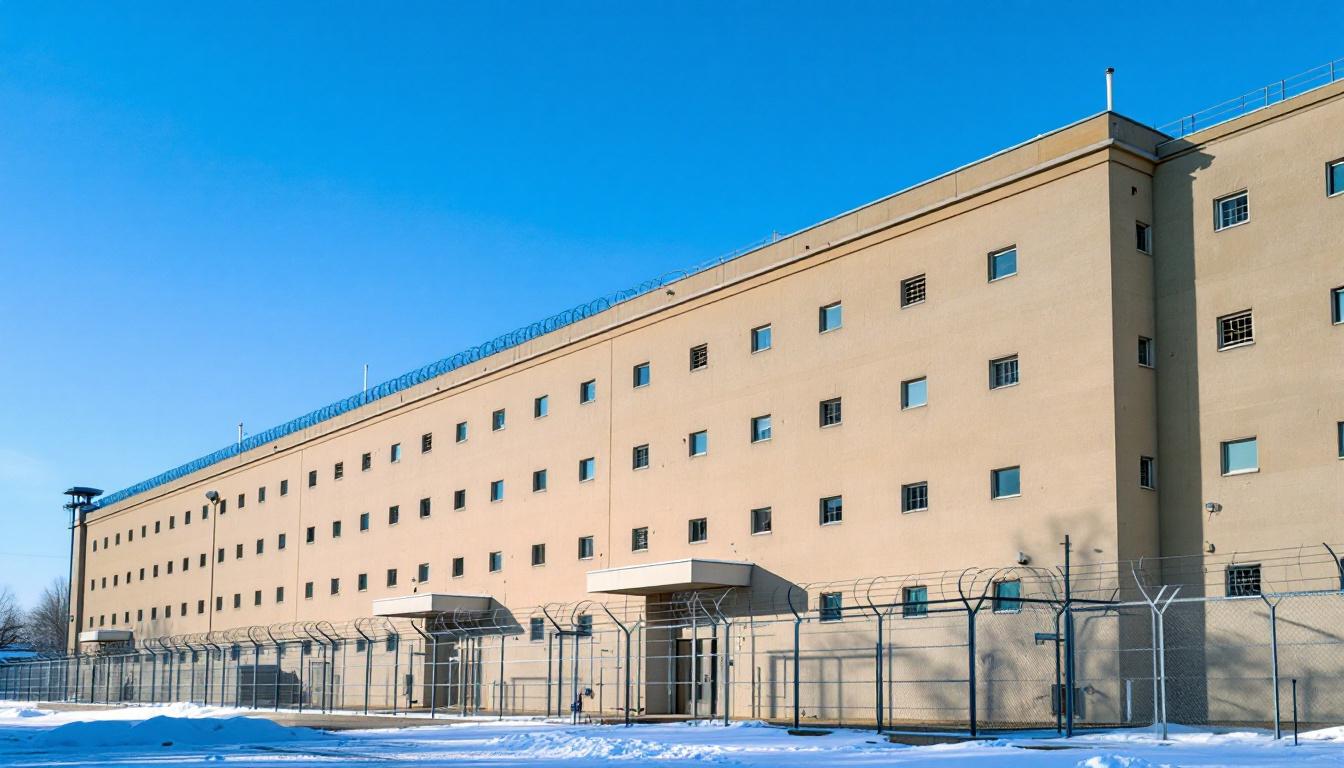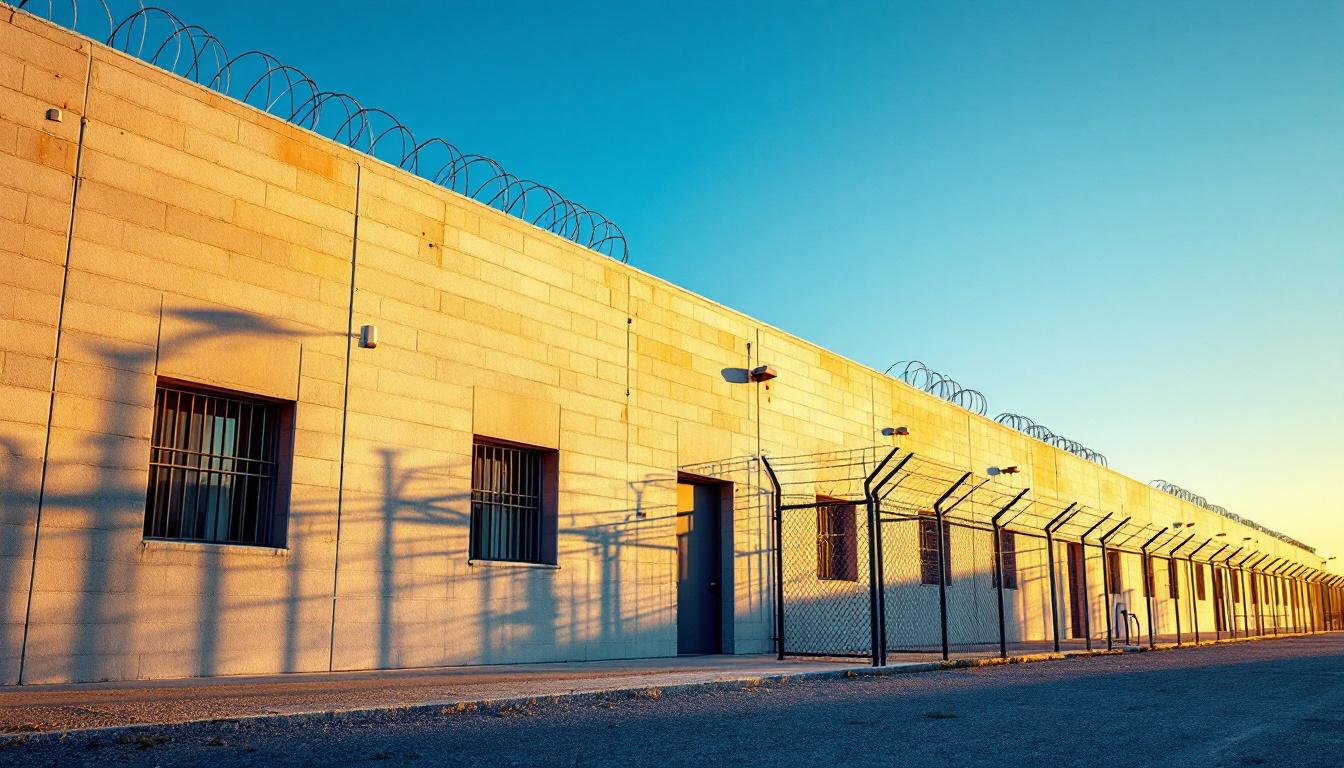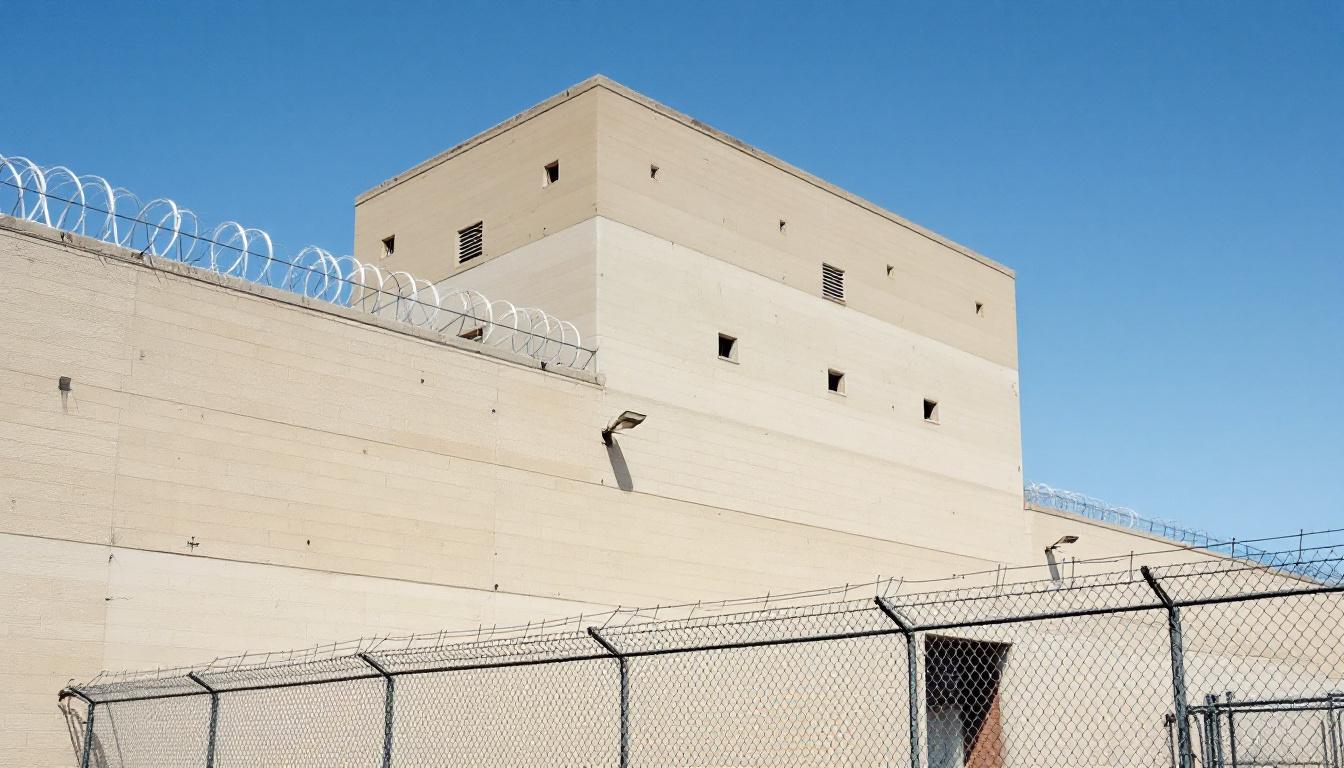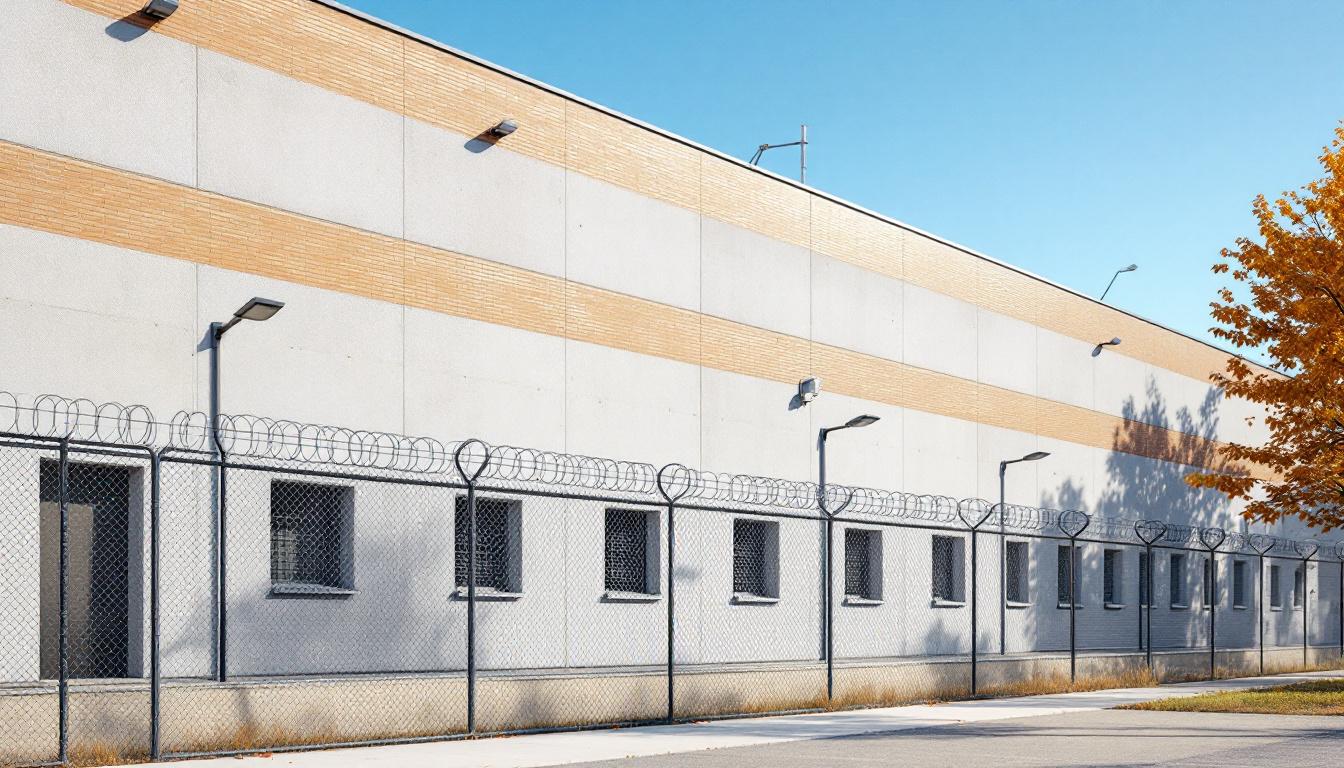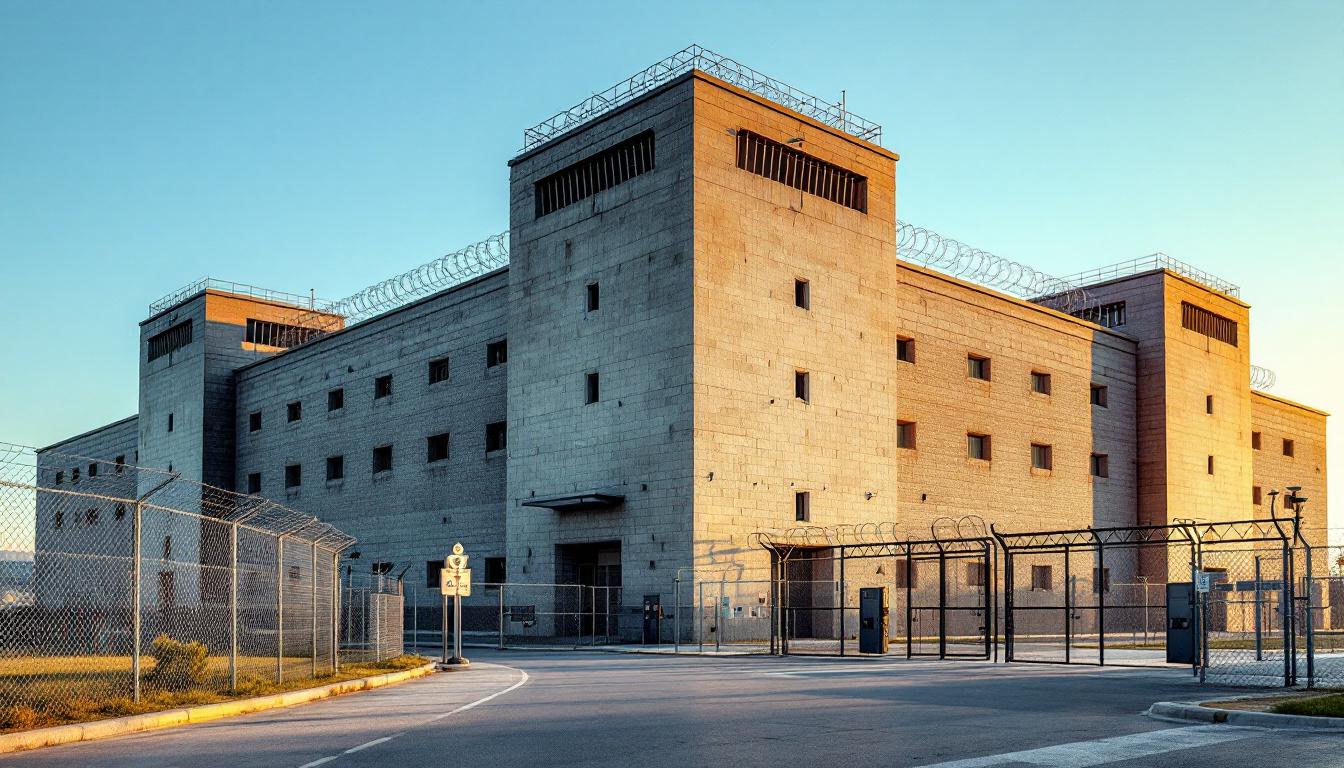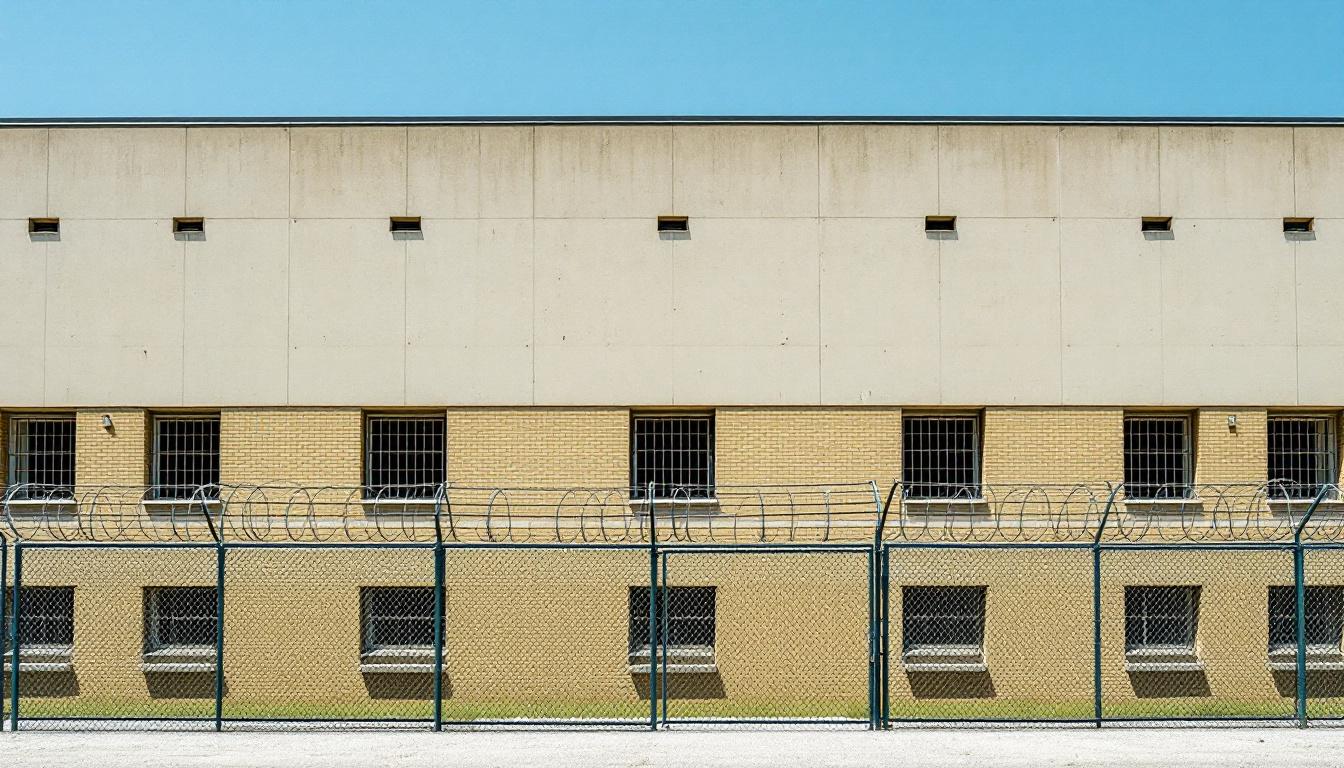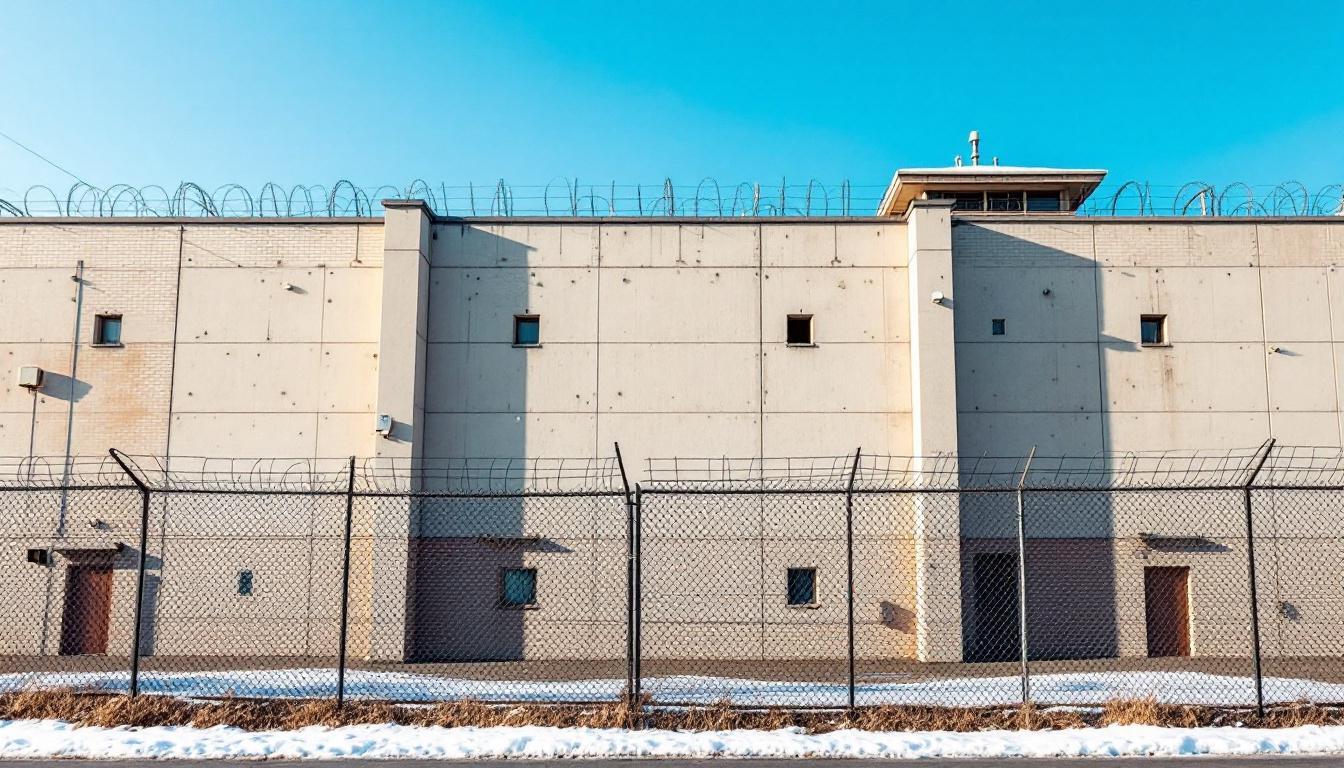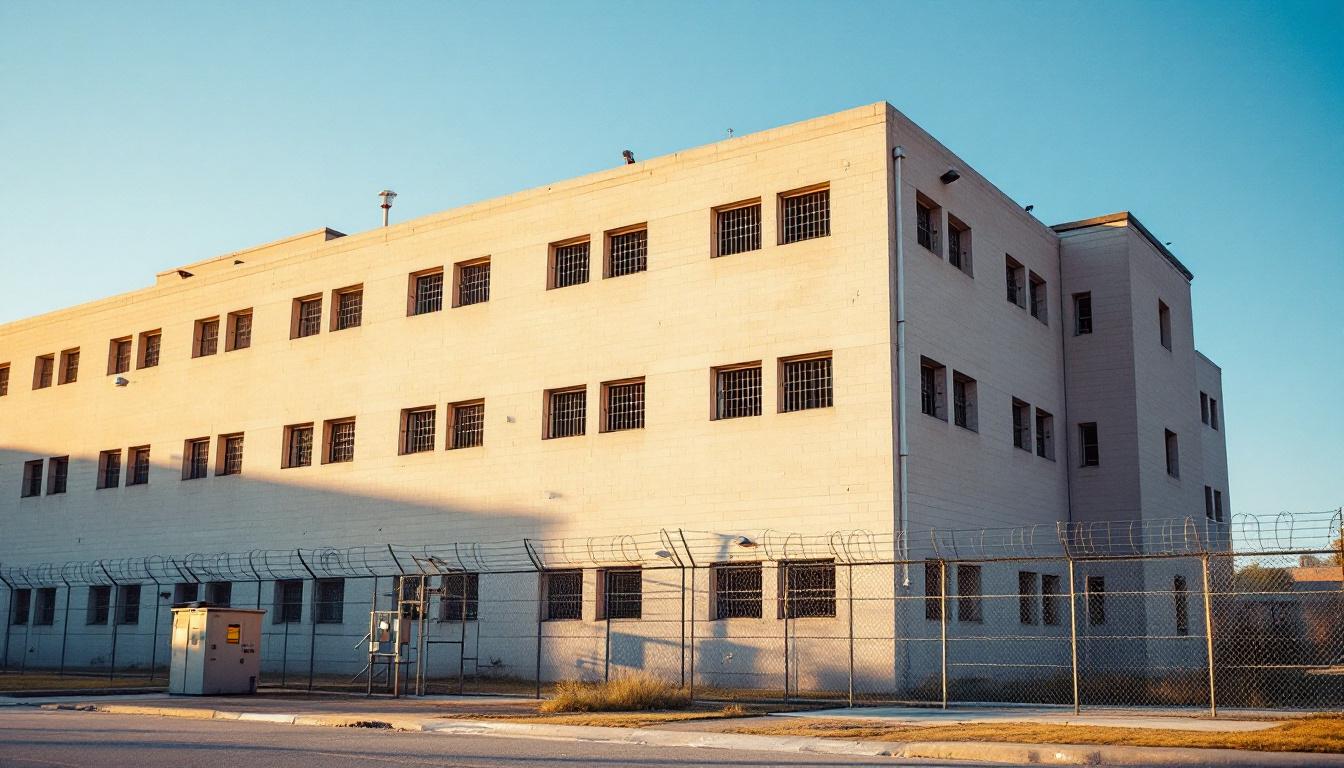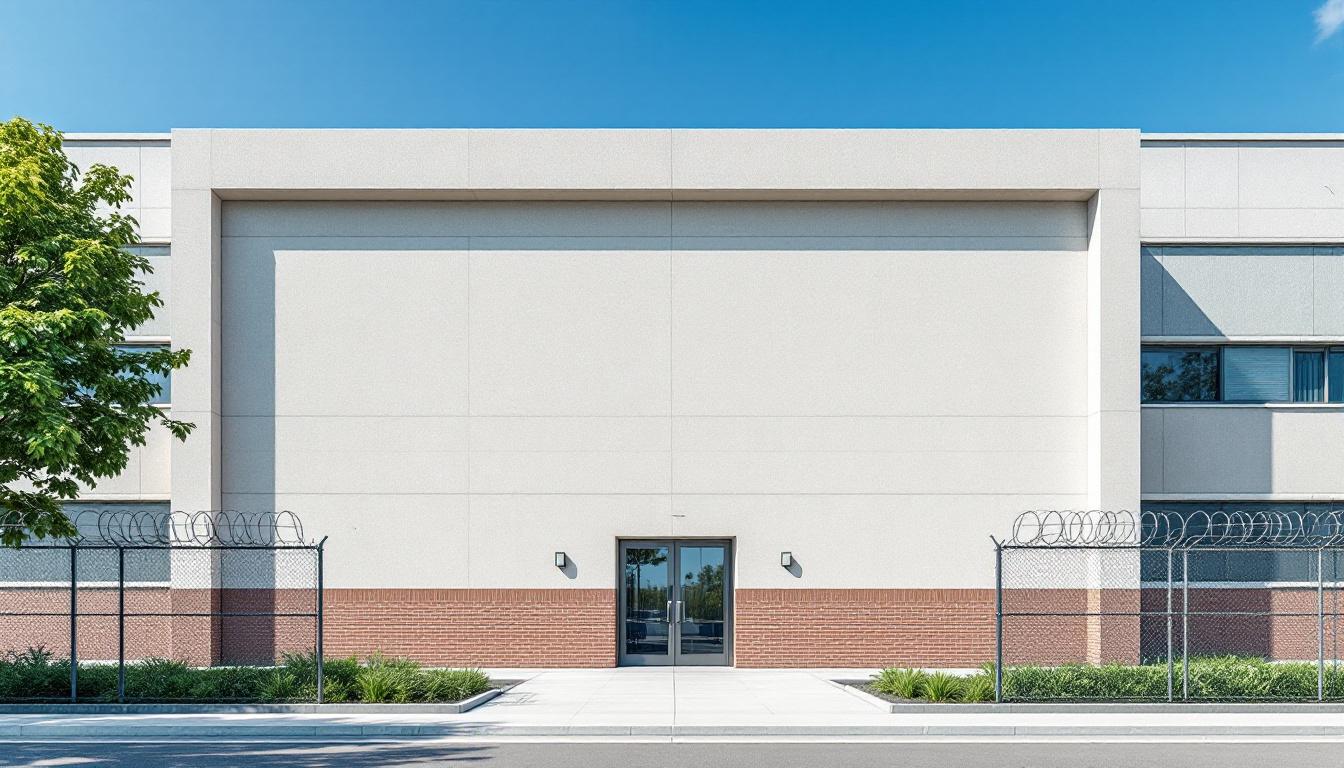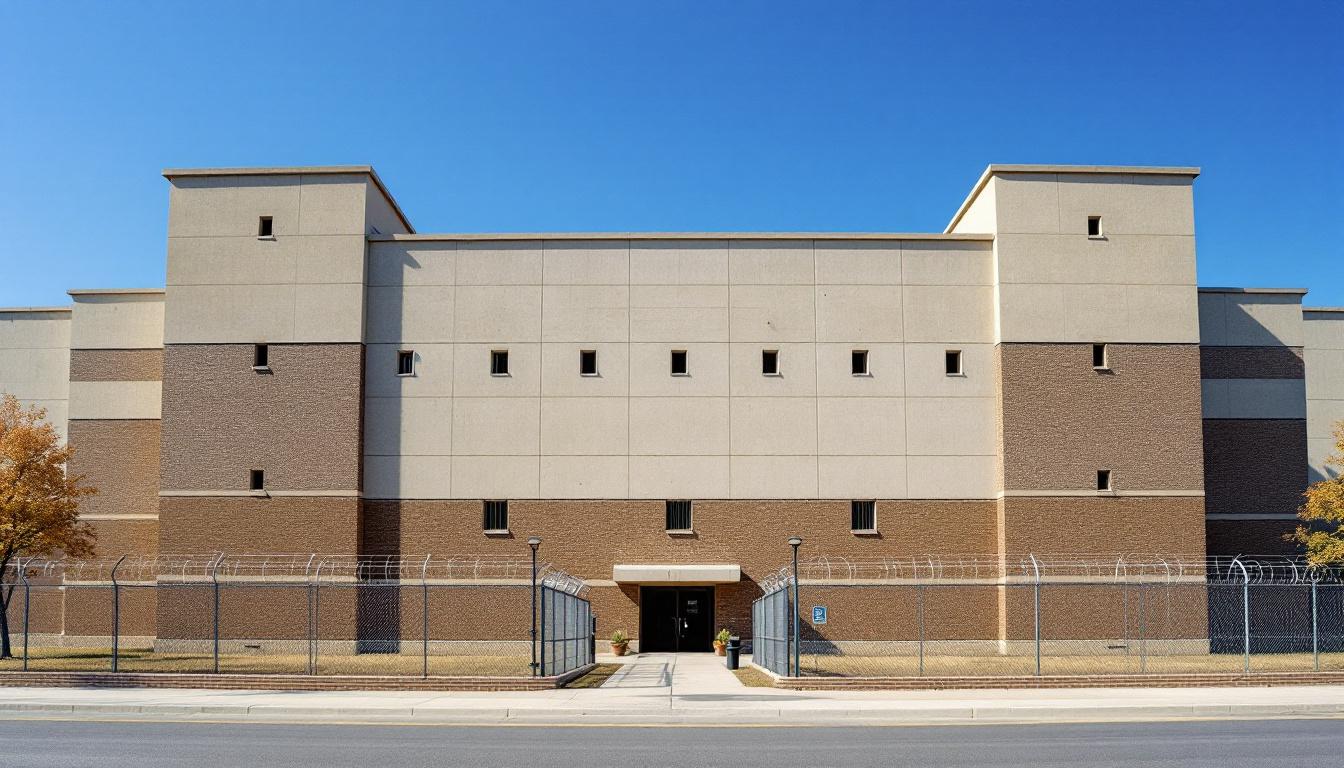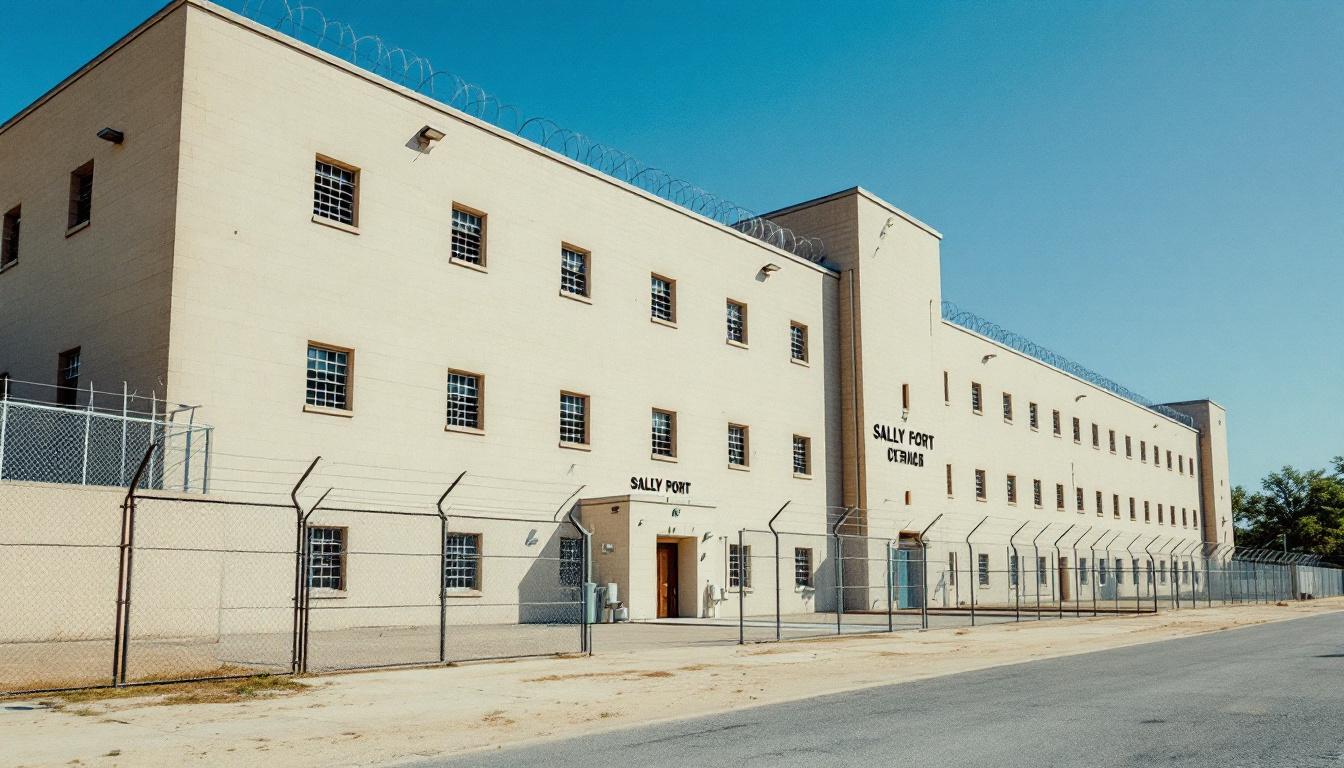
Quick Navigation
How to contact an inmate at Dade County Jail
This comprehensive guide will walk you through how to connect with an inmate at Dade County Jail. Follow the steps below to find an inmate and send letters and photos:
- Search for the inmate using our search tool below
- Create your account or log in to Penmate
- Write your message (up to 6,000 characters)
- Send instantly - inmates receive printed copies daily
Find an Inmate
Search for an inmate to start communicating today
Tip: You can search by first name, last name, or inmate ID number
To contact a person at Dade County Jail start by searching for the person on the official facility website. Perform a search by following these steps:
- Step 1: Enter their first name and last name into the search form and click "Search"
- Step 2: Locate their inmate record
- Step 3: Write down their Inmate ID and any housing information provided
Important! Be sure to enter the person's full name. Nicknames should not be used.
How to Send Messages to Inmates

You can use your phone or computer to send emails, letters, and photos to an inmate. Messages are sent electronically to inmate tablets or kiosks at the facility. If you would like to send a message, start by searching for an inmate at Dade County Jail.
Sending Photos and Postcards

A great way to send love and support to a loved one at Dade County Jail is to send photos and postcards. It only takes a few minutes to send photos from your phone and it makes a huge difference. You can also mail postcards with words of support and inspiration, or design your own postcard for special moments like birthdays and holidays.
Important! Be sure not to send any explicit photos or they may not be approved by the facility. You can also use a photo printing app like Penmate to make sure your photos are printed at the correct size (4x6 or 3x5) and are mailed according to the rules and regulations of Dade County Jail.
Frequently asked questions about Dade County Jail
-
How long does it take to deliver a message?
If you're sending an email message your letter is usually delivered within 24-48 hours. For messages sent via mail you should expect delivery within 3-7 days. All messages will need be approved by Dade County Jail.
-
How much does it cost to send a message to Dade County Jail?
You can send a message free using your phone or mail a message via USPS for the price of a $0.60 stamp and envelope. You can also purchase credits or e-stamps from services starting at $1.99.
-
What services can I use to contact an inmate at Dade County Jail?
Penmate
You can use Penmate to send letters and photos to an inmate from your phone. It's an easy way to stay in touch during your loved one's incarceration. Use the inmate locator to find an inmate's location and contact information, then you can send messages within a few minutes.
Securus messaging
Securus may be another option for communicating with an inmate at Dade County Jail. You can create a friends and family account and purchase credits to send messages. All messages will be reviewed and must be approved by the facility.
JPay
Some county jails and state prisons may support sending messages with JPay. You must register an account with the system, find your loved one, and purchase stamps to send messages. For some locations you can also attach photos.
Smart Jail Mail
You may also check if Smart Jail Mail is available at Dade County Jail. Smart Jail Mail is operated by Smart Communications and has contracted with some state and county jails. After purchasing credits, your messages and photos are sent to the facility, printed out, and then handed out to your loved one.
-
What is the mailing address of Dade County Jail?
Mailing address:
Dade County Jail
75 Case Ave
Trenton, GA 30752
Phone: (706) 657-3233 -
What are the visiting hours at Dade County Jail?
Visiting hours at Dade County Jail vary by housing unit and security level. Generally, visits are scheduled on weekends and holidays, with some facilities offering weekday visits. Contact the facility directly at (706) 657-3233 or check their website for the current visiting schedule. Visits typically last 30-60 minutes and must be scheduled in advance.
-
What items are prohibited when sending mail to Dade County Jail?
Prohibited items typically include: cash, personal checks, stamps, stickers, glitter, glue, tape, staples, paperclips, polaroid photos, musical or blank greeting cards, hardcover books, magazines with staples, and any items containing metal or electronics. Only send letters on plain white paper with blue or black ink. Photos must be printed on regular photo paper (no Polaroids). Always check with Dade County Jail for their specific mail policies.
-
How do I send money to an inmate at Dade County Jail?
You can send money to an inmate at Dade County Jail through several methods: 1) Online using JPay, Access Corrections, or the facility's approved vendor, 2) Money orders mailed directly to the facility with the inmate's name and ID number, 3) Kiosks located in the facility lobby, or 4) Over the phone using a credit or debit card. Fees vary by method, typically ranging from $2.95 to $11.95 per transaction.
-
Can I schedule a video visit with an inmate at Dade County Jail?
Many facilities now offer video visitation as an alternative to in-person visits. At Dade County Jail, video visits may be available through services like Penmate, Securus Video Connect, GTL, or ICSolutions. Video visits typically cost $10-20 for 20-30 minutes and must be scheduled in advance. You'll need a computer or smartphone with a camera and reliable internet connection. Contact the facility for their specific video visitation policies and approved vendors.
-
What identification do I need to visit an inmate at Dade County Jail?
All visitors must present valid government-issued photo identification such as a driver's license, state ID, passport, or military ID. Minors must be accompanied by a parent or legal guardian who can provide the minor's birth certificate. Some facilities require visitors to be on the inmate's approved visitation list, which may require a background check. Contact Dade County Jail for specific ID requirements and visitor approval procedures.
-
How can I find out an inmate's release date?
To find an inmate's release date at Dade County Jail, you can: 1) Use the online inmate search tool if available, 2) Call the facility's records department, 3) Contact the inmate's case manager or counselor, or 4) Have the inmate provide this information during a call or visit. For privacy reasons, some facilities only release this information to immediate family members.
Facility Overview
Official Website

About Dade County Jail
Community safety and rehabilitation intersect at Dade County Jail, GA, where Miami's correctional needs are addressed through comprehensive detention services that support both public security and individual transformation. This GA correctional facility operates as an integral component of the state's broader corrections network, managing pre-trial detention and sentenced individuals while maintaining strong connections to local courts, law enforcement agencies, and community resources. The facility typically emphasizes maintaining secure custody while providing inmates services that may include basic medical care, educational opportunities, and preparation for successful community reintegration.
Within Georgia's southern correctional landscape, the facility generally offers programming that addresses common rehabilitation needs such as substance abuse education, job readiness training, and mental health support services. County jail operations often include coordination with regional probation offices, treatment providers, and workforce development organizations to create pathways for positive outcomes. The Miami location enables family visitation and community connections that can be vital for maintaining relationships during incarceration periods.
Staff members typically work to balance security requirements with rehabilitation-focused approaches, recognizing that effective corrections involves both accountability and opportunity for positive change. The facility may provide library access, religious services, and recreational activities as part of its comprehensive approach to detention management, while maintaining the safety protocols essential for any correctional environment.
Programs & Services
Personal growth becomes the cornerstone of daily life when inmates participate in comprehensive development services designed to build essential life skills. The facility typically emphasizes a holistic approach to rehabilitation, recognizing that meaningful change requires addressing multiple aspects of an individual's needs. Services often focus on equipping participants with practical tools and emotional support necessary for successful community reintegration.
Educational services may provide foundational learning opportunities, including basic literacy and numeracy instruction for those seeking to strengthen core academic skills. Vocational training programs often complement these educational offerings by teaching hands-on skills that translate directly to employment opportunities upon release. These services typically emphasize practical application, allowing inmates to develop marketable abilities while serving their sentences.
Moreover, therapeutic support comes through individual counseling services, where participants can work through personal challenges with trained professionals. Faith-based services often provide spiritual guidance and community support for those seeking meaning through religious practice. The facility may also offer specialized vocational training in barbering and cosmetology, as well as upholstery skills, giving inmates opportunities to learn trades that can support their economic stability after release. These diverse support services work together to address the varied needs of the inmate population.
Daily Life & Visitation

Concrete walls and metal fixtures define the physical environment where inmates at Dade County Jail navigate their daily existence. The structured routine now begins early with morning counts and meal service, followed by regularly scheduled activities that provide framework to each day. Inmates typically move through designated areas according to security protocols, with housing assignments determining their access to common spaces and programming opportunities.
Living accommodations generally consist of shared cells or dormitory-style housing units, where inmates adapt to limited personal space and communal living arrangements. Moreover, the facility provides basic furnishings and bedding, while inmates may purchase additional comfort items through the commissary system when funds are available. Meals are typically served in designated dining areas or delivered to housing units, with inmates following established schedules for food service throughout the day.
Programming schedules usually include educational opportunities, work assignments within the facility, and recreational activities that help inmates maintain physical fitness and social connections. Whereas movement is restricted and supervised, inmates can generally participate in structured exercise periods and may access library services or television programming during designated hours. Family connections remain vital through scheduled visitation periods and telephone privileges, providing inmates with essential support systems that help them cope with the challenges of incarceration while maintaining relationships with loved ones on the outside.
Ready to Connect?
Start communicating with your loved one today
Search for an Inmate
